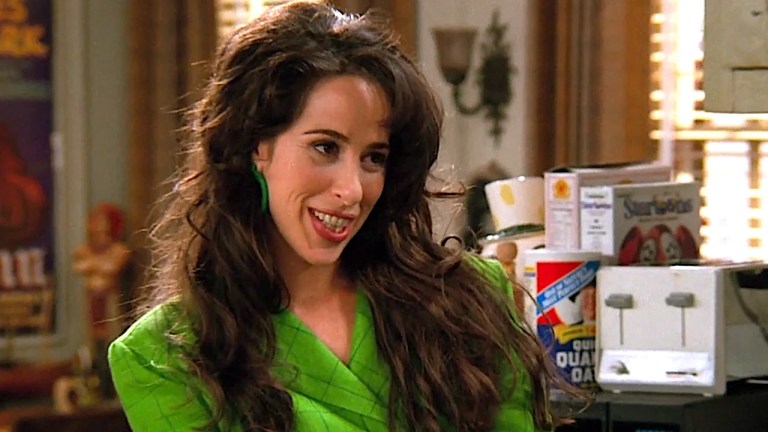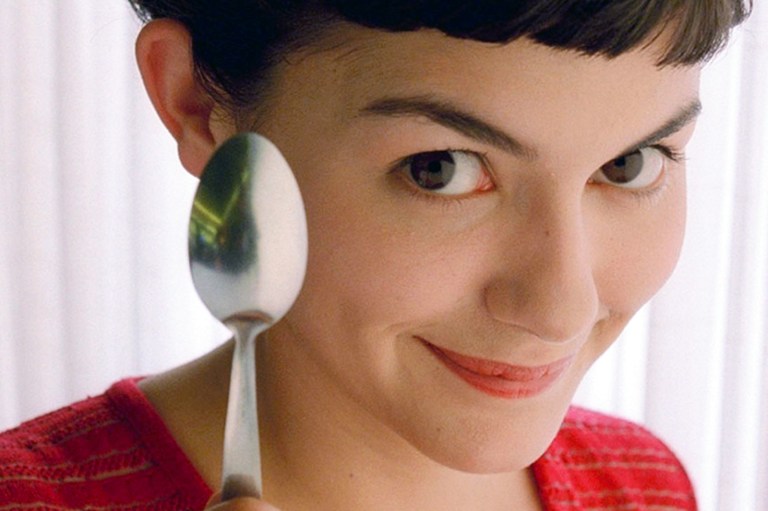
6 Ways To Figure Out If Someone Is A Bad Friend
Everyone is a grown up now, I thought. We can do grown up things! We can sit around and drink wine and discuss politics!
By ![]() Kat George
Kat George
When I finished high school, I thought that would be the end of shitty friendships. Everyone is a grown up now, I thought. We can do grown up things! We can sit around and drink wine and discuss politics! We can arrange destination surprise birthday parties for one another! We can take each other to have abortions! Hooray for adulthood!
For the most part, this was true–the good friends I’d always had continued being good friends, and the new friends I made at University fulfilled all my expectation of adult friendship. That was until I met Julia, rather innocuously, in class one day. She and I became “besties” in a triumvirate, with another girl we’ll call Amy. Julia, on the surface, was the perfect friend: always available to hang out, always on your side, always giving you advice about boys and what to wear. Except that in her spare time she was busy fighting for the title of Ultimate Cunting Champion, fabricating stories to drive Amy and I apart, skanking all over the boy I loved and purposefully giving me crappy advice so I’d always be one step behind her. She was a diabolical mastermind, who kept me and Amy and everyone else in our friendship group playing her game for almost 5 whole years.
Shit friends don’t stop existing. Sure, they’re fewer and farther between than in high school, where everyone is a sodding little bitch hell spawn with a sass mouth and bad attitude, but they’re still there. At least in highschool we had the excuse of being 100 odd girls penned onto a smallish campus, all adjusting to what seemed like near constant menstruation and being generally metal mouthed, pimply and awkward. There aren’t the same variables now as there were then, which makes a bad friend’s Machiavellianism all the more perverted.
Here are 6 primary ways to figure out if your friend is bad for you:
1. You are constantly making stupid decisions when you are with your friend.
Look around you. Is it 9am? Are you on a rooftop? Do you not really know whose rooftop it is? Have you been awake all night? Is someone calling a drug dealer to bring more drugs? Who is the girl holding your hand and speed-recounting her childhood to you? Now, the decisions that led you here you made autonomously, and you can’t lump all the blame on your friend, but you can also ask yourself: whose idea was this? Would you have suggested any of the chain of events that led you here, if your bad friend was absent? Would you get into this sort of situation without your bad friend? Does this sort of situation commonly occur when you are with your bad friend?
You can generally figure out if someone is good or bad for you by the influence they have on you. We all like to think that we make our decisions because we’re independent, informed adults, but even as a grown up there’s something very compelling about being part of something that’s bigger than you, even if that involves breaking into a construction site blind drunk to play “let’s split up and then try to scare the living shit out of each other before eventually toilet papering an empty flat and running away from security.”
2. You are always expected to put your life on hold for your friend.
If you’re always expected to drop everything for the tiniest little drama i.e. You have a deadline at school or work and your friend is freaking out about what she’s going to wear to the party because she thinks she looks fat and needs you to come over IMMEDIATELY to talk her out of her funk and back into going to the party, something is probably wrong. I’m the first on the scene when something is wrong in a friends life–but at the same time, you can’t be expected to solve every tiny little, fleeting, mundane misery or insecurity.
3. But your friend is never there for you.
When you’re up all night easing your friends pain because a boy doesn’t like her, but you ask for the same attention and are curtly told “get over it,” you might want to rethink your friendship. And when big life stuff happens and your friend is absent, you might want to consider exactly what it is you’re getting out of being someone’s emotional gimp.
4. There’s an unhealthy competition between you.
Julia didn’t like anyone to do better than her at school, so she’d encourage us to go out drinking, but she’d bail last minute and stay at home to study. She didn’t want anyone to be skinnier than her, so she’d buy KFC to share with us but never eat it herself. She didn’t want anyone to have a nicer dress than her, so she’d suggest ugly clothes for us. She didn’t want anyone else to get guys, so she’d muscle in on our crushes, or suggest things we could text them that would make us seem insane. She didn’t want Amy and me to be closer to each other than we were to her, so she’d fabricate mean things to tell us that the other one said. Competition is natural, everyone feels jealousies and insecurities about their friends from time to time–but when it’s so ugly your friend is interfering in your happiness, you should run away and never look back. But try to snatch the rest of that KFC on the way, there’s no use in wasting good food.
5. Their advice seems suspect.
As above, when someone doesn’t want you to succeed, they’ll often try to throw you off with shitty advice. If something is stirring in your gut when your friend is making suggestions, you should take a step back and assess what they are really saying to you–even take it to someone you truly trust and ask their opinion, because you’re probably a bit muddled from all the mind fucking by now–because chances are if your tummy is twerking then something fishy is going on.
6. You make excuses for all the shitty things your friend does to you.
If, on the eleventy billionth time your long time, close, loyal friend says to you, “Well that’s a really awful thing your other friend did,” your response, also for the eleventy billionth time, is, “Yeah but, I was sort of being too demanding” or “She was just having a bad week,” or “She was pretty drunk,” or “I mean, it’s only the second time she’s done it, I’m sure it won’t happen again,” you can rest assured you’ve been properly sucked into the k-hole of bad friendship. If you spend most of your time justifying your bad friend’s behavior, that should be a sure enough signal that bad friend is bad, and shouldn’t be allowed to wreak such havoc upon your life. ![]()

Buy Kat George’s PINK BITS.











